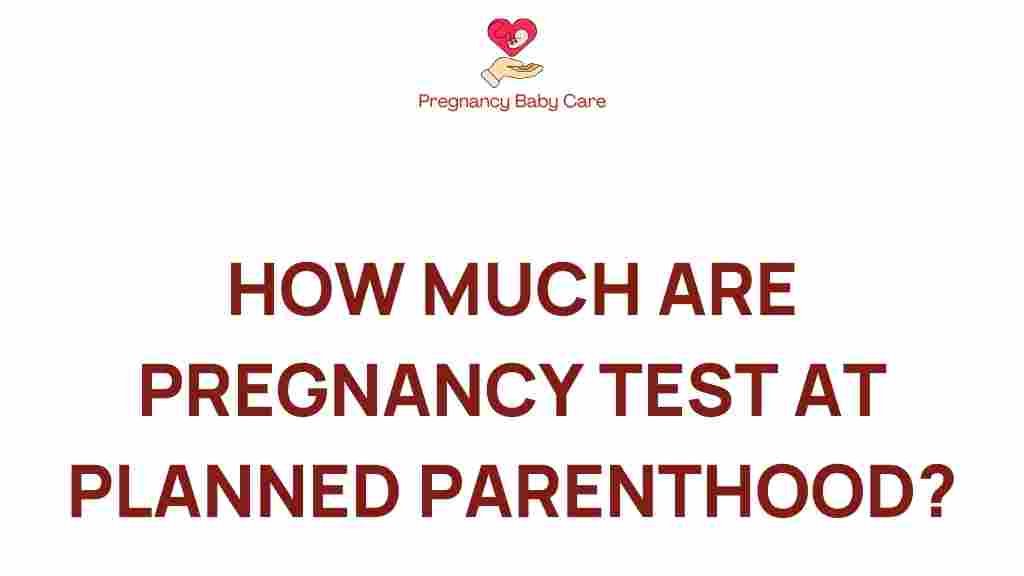The True Cost of Pregnancy Tests at Planned Parenthood
When it comes to reproductive health, understanding the costs associated with essential services like pregnancy tests is crucial. Planned Parenthood, a leading provider of reproductive health services, offers a variety of testing options designed to meet the needs of women from all walks of life. In this article, we will explore the financial aspects of pregnancy tests at Planned Parenthood, what to expect during your visit, and how to access the care you need without breaking the bank.
Understanding Pregnancy Tests
A pregnancy test is a simple yet vital method used to determine whether a woman is pregnant. There are two main types of tests available:
- Urine Tests: These tests are often done at home or in a healthcare setting. They detect the hormone human chorionic gonadotropin (hCG) in urine.
- Blood Tests: Conducted in a medical office, these tests can detect pregnancy earlier than urine tests and measure the exact amount of hCG in the blood.
Planned Parenthood provides these pregnancy tests as part of their comprehensive women’s health services. Knowing the costs and what to expect can help alleviate some of the anxiety associated with pregnancy testing.
Healthcare Costs at Planned Parenthood
The cost of pregnancy tests at Planned Parenthood can vary based on several factors:
- Location: Different states and clinics may have varying fees.
- Type of Test: Blood tests typically cost more than urine tests.
- Insurance Coverage: If you have health insurance, your plan may cover the cost of pregnancy tests.
On average, the cost of a pregnancy test at Planned Parenthood can range from $0 to $150. Many clinics offer sliding scale fees based on income, making services more accessible to those in need.
What to Expect During Your Visit
When you decide to visit Planned Parenthood for a pregnancy test, here’s what you can expect:
- Appointment Scheduling: You can schedule an appointment online or by phone. Some clinics accept walk-ins.
- Consultation: A healthcare provider will discuss your medical history and any symptoms you’re experiencing.
- Testing: Depending on the type of test, you will either provide a urine sample or have a blood draw.
- Results: Results can be available within minutes for urine tests and may take a few days for blood tests. The provider will discuss the results with you.
Planned Parenthood strives to create a supportive environment, ensuring that you feel comfortable and informed throughout the process.
Financial Assistance and Access to Care
For those concerned about the costs associated with pregnancy tests and other reproductive services, Planned Parenthood provides various financial assistance options:
- Sliding Scale Fees: Many clinics offer a sliding scale fee structure based on income, allowing you to pay what you can afford.
- Insurance Options: If you have insurance, check with your provider to see if pregnancy tests are covered under your plan.
- State Programs: Some states offer programs that provide funding for reproductive health services.
To learn more about financial assistance options at Planned Parenthood, visit their official website for detailed information and resources.
Testing Options: Choosing What’s Right for You
When deciding on a pregnancy test, consider the following factors:
- Timing: If you suspect you’re pregnant, the timing of the test is crucial. Home urine tests are most accurate after a missed period.
- Convenience: Home tests offer privacy and convenience, while tests at Planned Parenthood provide professional support.
- Health Concerns: If you have health conditions or are on medication, a blood test may provide more accurate results.
Consulting with a healthcare provider can help you make the best decision for your situation.
Troubleshooting Common Concerns
It’s common to have questions or concerns when taking a pregnancy test. Here are some troubleshooting tips:
- What if the test is negative? If you receive a negative result but still suspect pregnancy, wait a few days and test again. Hormone levels can take time to rise.
- What if the test is positive? Schedule an appointment with a healthcare provider to discuss your options and next steps.
- What if I have irregular periods? If your cycle is irregular, you may want to consult with a provider about the best time to test.
Remember, you are not alone. Planned Parenthood offers support and guidance throughout the process, ensuring you have access to the care you need.
Conclusion
The cost of pregnancy tests at Planned Parenthood can vary, but the organization is committed to providing affordable healthcare options for women. By understanding the testing options available, the potential costs, and the financial assistance programs, you can feel empowered to take control of your reproductive health. Whether you need a pregnancy test or additional reproductive services, Planned Parenthood is here to support you every step of the way.
For more information on accessing care and understanding your healthcare costs, visit the Planned Parenthood website or contact your local clinic to learn about available services and assistance.
This article is in the category Health and created by PregnancyBabyCare Team
